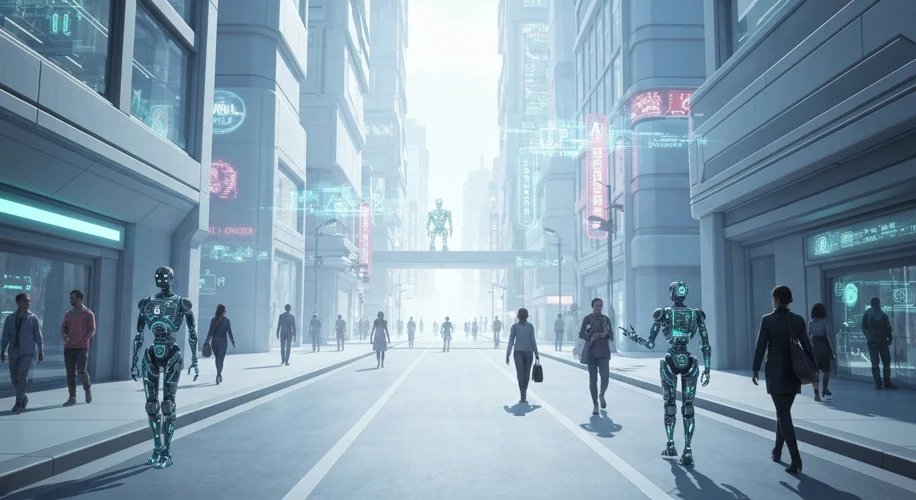It’s August 2025, and the pace of change in artificial intelligence and robotics feels faster than ever. As someone who’s spent decades in the tech world, I’m constantly amazed by what’s happening. We’re not just talking about incremental improvements anymore; we’re witnessing fundamental shifts.
Take Google Deepmind’s Genie 3, for instance. It’s an AI model that can generate incredibly realistic 2D and 3D environments from text prompts. Imagine instructing an AI to create a virtual forest or a bustling city street, and it actually builds it. This kind of generative capability is a huge leap forward.
Then there’s Meta’s AI advancements, pushing the boundaries of what AI can understand and interact with in the real world. These aren’t just smart programs; they are systems designed to perceive, learn, and act in complex environments.
On the robotics front, companies like Figure AI are developing humanoid robots. Their Figure 02, for example, showcases impressive dexterity and mobility. These aren’t the clunky machines of old. They’re designed to perform tasks that were once exclusively human-domain.
So, what does this mean for the future of work? From my perspective, it’s not a simple story of robots taking all our jobs. It’s more nuanced. These advancements are creating new possibilities and, yes, also presenting challenges.
We’re likely to see a significant transformation in how tasks are performed. Repetitive, manual, or even some complex cognitive tasks that can be clearly defined might be handled by AI and robots. This could free up human workers to focus on areas requiring creativity, critical thinking, emotional intelligence, and complex problem-solving – skills that are still uniquely human.
Consider an architect who can use Genie 3 to quickly visualize multiple design concepts, or a factory manager who can rely on advanced robots to handle precise assembly tasks. The human role shifts from doing the task itself to designing, overseeing, and troubleshooting the systems that do the task.
This also means the skills needed in the workforce will evolve. There will be a greater demand for people who can develop, manage, and interact with these advanced AI and robotic systems. We’ll need AI trainers, robotics ethicists, and human-AI collaboration specialists. Lifelong learning and adaptability will become even more critical than they are today.
As a society, we need to think thoughtfully about this transition. It’s crucial to consider how we support workers through this evolution, ensuring they have access to training and opportunities in these new fields. Promoting ethical development and deployment of these technologies is paramount, ensuring they serve humanity’s best interests.
The future of work isn’t about humans versus machines. It’s about how humans and machines can collaborate to achieve more than either could alone. The key question for all of us is how we prepare for and shape this future responsibly.

